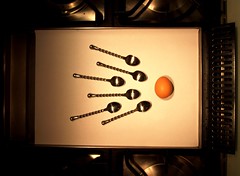 A new study shows that older fathers are more likely to transmit new DNA variations to their children than younger fathers are. The researchers report that this means that older fathers have a higher risk of having children who have an autism spectrum disorder.
A new study shows that older fathers are more likely to transmit new DNA variations to their children than younger fathers are. The researchers report that this means that older fathers have a higher risk of having children who have an autism spectrum disorder.
There have been several different studies that result in data that indicates that older fathers have a higher chance of having children who have autism than fathers who are younger do. Previous to these studies, it was presumed that the age of the mother was the significant factor in determining the risk of having a child who has autism.
A study done in 2006 concluded that children who had fathers who were in their thirties when a child was conceived have a one and a half times greater risk of developing autism than did kids whose fathers were in their teens and twenties. Kids born to fathers who were in their forties were at five times the risk of developing autism. Children born to fathers who were in their sixties were at nine times the risk.
In 2011, a study was done on mice that came to the same conclusion. Researchers bred mice. Some male mice were older, and some male mice were younger. The female mice were all the same age. Researchers sequenced the genomes of the mice.
A total of 12 offspring mice were produced. Those mice were given behavioral tests and had their brain structure analyzed. Researchers found mutations in the genomes of the offspring mice that were not present in the genomes of the parents of the mice. The baby mice that came from older mouse fathers showed six new mutations.
The researchers matched these mutations to equivalent genes in humans, and found that the mutations are linked to autism and schizophrenia in humans. The mice who came from the younger mouse fathers did not have the mutations.
A new study that was led by scientists at Reykjavik, Iceland-based deCode Genetics, Inc., found that human fathers who are older are more likely to pass on DNA variations to their offspring than are human fathers who are younger. The significant factor is the age of the father at the time the child is conceived.
Each year of age in the fathers results in an average of 2 extra new mutations. The genetic changes in the dads could be due to age, environmental factors, or mistakes that occur in cell division. The mutations lead to “substantially impaired health in the children of older fathers”.
The researchers suggest that one way to avoid this problem is for young men to have their sperm collected for the purpose of cold-storing it for later, when the men wish to become fathers. The fathers would be older, but their genetic contribution to their child would come from when the men were younger.
Image by Sexy Eggs on Flickr

